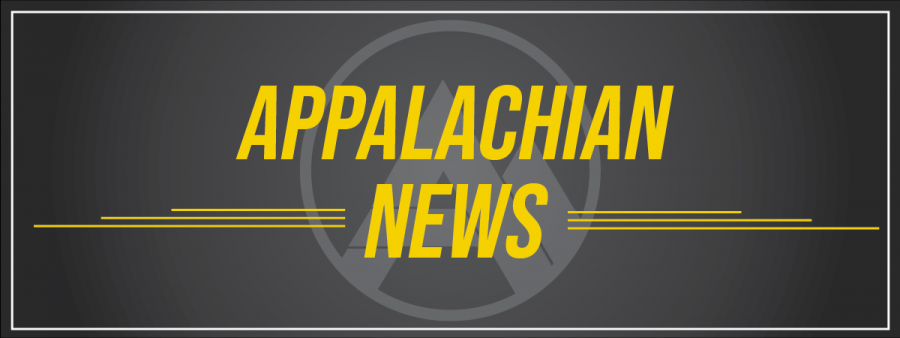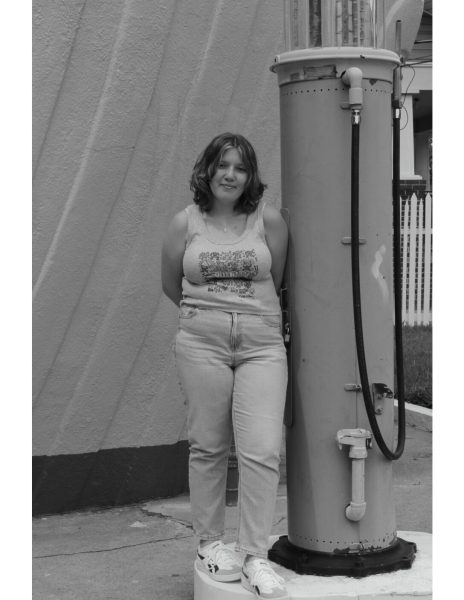The “We’re Here” panel series began in September, covering topics such as disability communities, religious diversity and first-generation students. Wednesday, the panel topic was Immigrant-Affected & International Communities.
The panel series was organized by the Office of Diversity to provide an opportunity for diverse groups of the student body and faculty to share their experiences at App State.
The panel consisted of Juhee Woo as the moderator and two students, Clement Okon and Emma Wille. Woo is an assistant professor in the Department of Sociology, a co-facilitator of the Immigrant Mountaineer Movement and a co-facilitator of the International Mountaineer FacultyMentoring Circle.
Okon is a Nigerian violinist who is currently pursuing a master’s degree in music performance and is the recipient of the Graduate Diversity Fellowship. Okon plays for the Symphony of the Mountains, the Johnson City Orchestra, Appalachian Symphony Orchestra and teaches violin at the Hayes School of Music.
Wille is a senior psychology major with a concentration in human services who lived in Okinawa, Japan until 2011. Wille is the vice president of the Japanese Culture Club.
Woo started the conversation by having the students talk about where they are from and how they got to where they are in Boone.
“I wanted a professional music experience and I wanted to further my learning in music,” Okon said.
Okon said he began to search for different schools to apply to and originally looked into private schools which were too expensive. He then broadened the search to public schools in the U.S. with App State being one of the first on the list to which he applied and auditioned for.
“It was a long journey, but I made it true,” Okon said.
Following Okon’s response, Wille shares how her journey started. Wille was originally born in Jacksonville, North Carolina but her family moved to Okinawa before she turned one. Wille said other colleges did not catch her interest during her search in high school.
“One day I came across Appalachian State, there was an alphabetical list and it was one of the first ones and I was like, ‘Oh cool, let me see,’” Wille said. “Then I just fell in love and I applied and now I’m here.”
Woo also shared her experience of coming to work at App State. Woo is originally from South Korea and moved to the U.S. in 2008. She received her bachelor’s degree and master’s degree from Minnesota State University as a part of an exchange program and received her Ph.D. from the University of Colorado.
The next question Woo asked was about Okon and Wille’s experiences so far as students at App State.
“It has been a lot of fun, a lot of learning, learning the environment, learning about new people, learning the culture, new educational system, new identities, a new way of life,” Okon said. “It’s just been getting into a new environment and trying to start fresh, a fresh way of life, a fresh way of living.”
Wille said coming to Boone was an adjustment as where she is from is flat with beaches. The mountains were different in comparison. The culture of Boone was also a big change for Wille.
The next question focused on the challenges each student has faced as well as their favorite parts of being a student at App State.
“I would say a language barrier,” Okon said. “Although we speak English, we have accents and sometimes we find it difficult for people to understand us.”
Okon said he struggled to understand the American accent when he first came to Boone. He also struggled with adjusting to the new culture, customs and ways to communicate and talk to others.
Okon said he has had issues with finding internships and other opportunities as there are few available for international students. Okon said it made it hard for international students to expand their experience while receiving education.
“We want to have internships, some of us want to have jobs and then you see that this job is only for North Carolina residents,” Okon said.
Okon and Wille said they experienced a kind of social isolation and loneliness while at App State. Okon has not been able to see his family since he came to App State in 2022.
Okon said the food was difficult as he was not able to easily adapt to the differences in the food for a while.
Okon and Wille shared a sentiment about the lack of food from their ethnicities within a close enough distance for them to enjoy.
“When I get homesick, I crave food. I crave my mom’s cooking,” Wille said. “There’s no Asian markets here where I can find snacks that I’m used to.”
Woo said she has the same struggle of being unable to find South Korean food and said she has to drive three hours to get Korean groceries. Woo struggles with this as it is hard for her to be able to make that trip often.
Wille said another challenge has been finding students and people in the App State and Boone communities with similar cultural backgrounds.
“Something that has been a big challenge is finding other people with similar cultural backgrounds and creating that sense of community,” Wille said. “But at the same time, I also think that that is a pro that I do have a different background and that’s something I can bring with me.”
Wille said her experience of being from another country and culture has helped her bring in a new perspective in her classes.
Okon said his favorite experience of being at App State has been the exchange of culture between Americans and other international students. He said he has enjoyed being able to learn about these cultures and also get to teach others about his own culture.
Woo said she also struggled in university with being able to obtain the same resources that American students had as she was an international student. She said she was unable to work off campus or receive scholarships.
“I think something that a lot of university employees, faculty and staff should be aware of providing more resources for students with immigration status or with international background,” Woo said.
The next question asked Okon and Wille to share a story of when they were supported by someone in the community when they needed it the most.
Okon shared a memory of a faculty member who took the initiative to make sure he had winter clothes that were able to withstand the winter months in Boone.
“He actually spoke to the faculty here in the Hayes School of Music and the faculty members donated a lot of winter wear for me,” Okon said.
Wille said she and her roommate both shared an Asian background but wanted to find more with similar backgrounds to their own.
“We went to Club Expo and we learned about the Asian Students Association,” Wille said. “And the first meeting we had walked in and I just remember we were both mind blown.”
Willie said it was an important time for her as she got to meet so many new people with a cultural background similar to her own.
Woo joined the Immigrant Mountain Movement when she became a faculty member in 2020. She said that the IMM has become a support system for her as well as the faculty in general.
Woo developed the International Mountaineer Faculty Mentoring Circle which she said App State was very supportive of.
“The university tries to support folks who have immigrant issues or are affected by immigration status,” Woo said.
Woo said that there are resources available for faculty which makes her feel supported.
The next question asked Okon and Wille to give advice to future students coming from different cultural backgrounds.
Okon said that for immigrants and international students, an understanding of cultural differences is a necessity.
“Recognize, respect and value other varied cultural backgrounds, values and beliefs,” Okon said. “We don’t have the same beliefs, we don’t have the same culture. Don’t make me feel stupid for my own culture. Recognize and respect my own culture as much as I respect yours.”
Wille said she has witnessed an assumption about students with international backgrounds from Americans.
“They kind of assume that they’re dumb. I have heard people be like ‘well, what’s the point? They’re not going to understand,’” Wille said. “Just because someone doesn’t speak the same language as you doesn’t mean that they’re any less than you.”
Wille’s advice is to talk to people and ask what they need without making assumptions about that person.
“International students or people who speak English as their second language, I think they internalize it,” Wille said. “They see it as a limitation rather than a benefit, right? Remind yourself you’re speaking a second or third language, that’s a plus, that’s a benefit.”
Woo asked what each of their hopes are for the future of immigrant-affected individuals and international students at App State.
“I hope that in the future immigrants and immigrant-affected students will feel more welcome, more included in the active campus society and then with access to more resources and opportunities that support their wellbeing and success,” Okon said.
Wille said she hopes that there will be more resources but also hopes the ones that are already available will be easier to access and more known about.
“There’s still so many people that don’t know about the different cultural clubs and groups,” Wille said. “I’m still meeting people that don’t know about INTAPP, International Appalachian, exists.”
The “We’re Here” series will feature a final panel titled “Voices of Appalachia” March 26 via Zoom. For more information on the panel, visit the Office of Diversity’s Engage.


